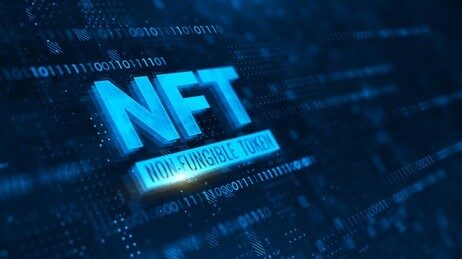NFTs, or Non-Fungible Tokens, have taken the digital world by storm, revolutionizing the concept of ownership in the virtual space. In this article, we’ll delve into the intricacies of NFTs, exploring their origins, functionality, and the future they promise.
Introduction to NFTs
NFTs, in essence, are unique digital assets that represent ownership of a specific item or piece of content. Unlike traditional currencies or cryptocurrencies, NFTs are indivisible and cannot be exchanged on a one-to-one basis. Their uniqueness and scarcity are what make them highly sought after in the digital realm.
Understanding NFTs
What sets NFTs apart from other digital assets is their ability to provide true ownership and provenance. Each NFT is stored on a blockchain, a decentralized and secure digital ledger. This ensures that the ownership of an NFT can be traced and verified, eliminating the risk of duplication or unauthorized reproduction.
How NFTs Work
The underlying technology behind NFTs is blockchain, a distributed ledger that records transactions across a network of computers. Smart contracts, self-executing contracts with the terms of the agreement directly written into code, facilitate the creation and transfer of NFTs. This process, known as minting, involves turning a digital file into a one-of-a-kind token on the blockchain.
Creating and Minting NFTs
For those looking to enter the world of NFTs, the process begins with minting. Various platforms, such as OpenSea and Rarible, allow creators to tokenize their digital assets. This includes art, music, videos, and even virtual real estate.
NFT Marketplaces
The market for NFTs has exploded, with several platforms serving as marketplaces for buying and selling these unique tokens. Platforms like NBA Top Shot, Foundation, and Binance NFT have become hotspots for collectors and investors alike.
Trading Future of NFTs
As NFTs continue to gain popularity, the market dynamics evolve. Traders and speculators engage in buying and selling NFTs, with values often fluctuating based on demand, rarity, and the artist’s reputation.
Legal and Ethical Considerations
However, the NFT space is not without its challenges. Copyright issues, ownership disputes, and scams have raised concerns, prompting the need for legal and ethical considerations.
Prominent NFT Use Cases
NFTs have transcended beyond the art world. From music and entertainment to gaming and virtual assets, NFTs have found applications in various industries, redefining how we perceive and own digital content.
NFTs in the Mainstream
The involvement of celebrities in the NFT space has propelled its mainstream acceptance. With renowned artists, musicians, and athletes joining the NFT movement, the market has witnessed an influx of interest from traditional investors.
Challenges and Criticisms
Despite its success, the NFT space is not without criticisms. Environmental concerns related to the energy consumption of blockchain networks and fears of market saturation leading to a bubble are areas that warrant careful consideration.
Tips for NFT Beginners
For those new to the NFT space, thorough research is essential. Understanding the technology, market trends, and potential risks will empower individuals to make informed decisions when venturing into NFT investments.
NFTs and the Future of Digital Ownership
Beyond the hype, NFTs have the potential to reshape how we view and own digital assets. The impact of NFTs is not limited to the art world but extends to various industries, offering new possibilities for creators and consumers alike.
Case Studies
Examining successful NFT stories and learning from failures can provide valuable insights for both creators and investors. Understanding the factors that contribute to NFT success or failure can inform future decisions in the dynamic NFT market.
Conclusion
In conclusion, NFTs represent a paradigm shift in digital ownership, offering a new way for creators to monetize their work and for consumers to own unique digital assets. While challenges exist, the potential for NFTs to redefine industries is undeniable.
FAQs
Are NFTs only limited to art and collectibles?
- No, NFTs have expanded to include music, videos, virtual real estate, and more.
How do I mint my own NFT?
- Platforms like OpenSea and Rarible provide tools for creators to tokenize their digital assets.
What are the environmental concerns associated with NFTs?
- The energy consumption of blockchain networks used for NFTs has raised environmental concerns.
Can I trade NFTs like stocks?
- Yes, NFTs can be traded on various marketplaces, with values influenced by demand and rarity.
Is NFT investment risky?
- As with any investment, there are risks. Thorough research and understanding are crucial before diving into the NFT market.




